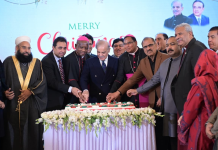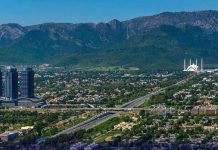ISLAMABAD, MAR 11 (DNA) – The United States-Taliban peace agreement signed in Doha, despite its significance,cannot be deemed substantial enough for creating sustainable peace in war-ravaged Afghanistan.Afghanistan is home to various ethnicities and has witnessed a history of insurrections and presently, lack of cordial relations exist amongst different political entities of the country with no common agendas to converge on.
Afghan soil has also been used as a hotbed of proxy warfare by India which could very well jeopardize the intra-Afghan dialogue. Peace settlement cannot materialize if all stakeholders in Afghanistan do not accept the legitimacy of their political opponents.
Various political groups might appear to be a motley crew, but they are the only way forward to form a grander National Unity Government. There are no victors and losers in this peace agreement between the US and the Taliban.
These were some of the conclusions of the Symposium on “Intra-Afghan Dialogue: A New Hope” organized by the Islamabad Policy Research Institute here in the capital today.
Eminent speakers included former Pakistani ambassadors and diplomats.The speakers highlighted peace in Afghanistan may not suit New Delhi’s ambitions for regional hegemony and can cause them to continue intervening in the politics and decision-making of the country.
The diplomats cautioned that Afghan politicians must be wary of issuing irresponsible statements which may derail efforts to find a solution to this 20-year old conflict.
An intra-Afghan dialogue is the only hope for millions of citizens as well as the refugees hoping to return to their homeland. Such a scenario still seems implausible, but is not entirely impossible.
Discussing “The US-Taliban Peace Agreement: An Analysis and Future Prognosis”, Ambassador (R )Riaz Muhammad Khanhoped that external actors would allow space to Afghan factions to work on their differences.
He highlighted that just like many other talks before the Doha agreement, it is unclear whether this one will culminate into something positive. Outlining the “Complexities of Peace and Conflict Dynamics in Afghanistan: Future Scenarios and Pakistan’s Response”, Ambassador (R) AyazWaziropined that there is mistrust between Afghans themselves, and until all Afghans forego personal interest and make public interest key for political dispensation, it will be difficult to achieve results.
Afghan peace process should not be hostage to spoilers’ agenda. There has been a clean disconnect between Taliban and Afghan government’s understanding which has been bridged partially through the post agreement Joint declaration after addressing the sensitivities of President Ashraf Ghani.
It was pointed out that presence of Daeshalso poses a grave challenge to the peace and stability of Afghanistan, as there could be an exodus of hardline militants associated with the Taliban and other insurgent outfits, who reject negotiations with the US and the government in Kabul.
Theycould joinISIS. The recent attack on a ceremony attended by Abdullah Abdullah, marking the death anniversary of ethnic Hazara leader, Abdul Ali Mazari,was claimed by ISIS on their news website Amaq.
The attack, killing over 30 citizens, manifests how ISIS needs to be declared a common enemy as there could be a surge in terrorist attacks in order to magnify the trust deficit, and as a consequence any possibility for a settlement, could evaporate.
All parties, especially the US, must also remain vigilant of any regional players, especially India, which might play the role of a spoiler.
On the issue of “Intra-Afghan Dialogue and the Role of Pakistan and Regional Powers,” Ambassador (R) AyazWazir insisted that there should be no interference from Pakistan and whatever the Afghans agree upon Islamabad should be the first to recognize and respect it. Ambassador (R) Syed AbrarHussainhighlighted that Pakistan wants a stable and peaceful Afghanistan, and stressed that no external power should meddle in Afghanistan’s affairs and Afghans should solve their problems in accordance with their own traditions.
Earlier, President IPRI Ambassador Vice Admiral (R) Khan Hasham bin Saddique, welcomingsenior diplomats, academicians, and correspondents of various media outlets, briefly pointed to possible future scenarios including Afghanistan falling into a civil war as well as undergoing institutional transition and forming a representative government.
He opined that Pakistan wishes to see a peaceful and stable Afghanistan that is essential for economic integration and prosperity of the region.
He hoped that Intra- Afghan dialogue will lead to establishment of a consensus of political dispensation in accordance with the aspirations of the people of Afghanistan.=DNA
==========











